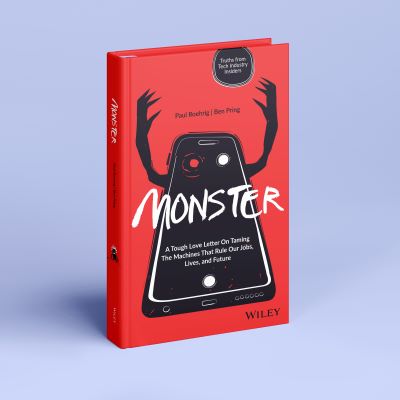| Su | Mo | Tu | We | Th | Fr | Sa |
|---|---|---|---|---|---|---|
| Su | Mo | Tu | We | Th | Fr | Sa |
|---|---|---|---|---|---|---|
-
 May 8, 2021Mint
May 8, 2021MintThe deal momentum of Cognizant Technology Solutions Corp. is being largely driven by its digital business, said Rajesh Nambiar, chairman and managing director, Cognizant India.
-
 May 7, 2021AIThority
May 7, 2021AIThorityEven during the harshest months of our biggest humanitarian crisis, cloud migration grew significantly in 2020.
-
 May 7, 2021Intelligent CIO
May 7, 2021Intelligent CIOThe Coronavirus pandemic has changed how we all live and work and reports already suggest we will see a mass movement out of previous economic hubs such as London.
-
 May 6, 2021Business Standard
May 6, 2021Business StandardNasdaq-listed IT major Cognizant reported better numbers for the first quarter of CY21, as it saw recovery in its health care vertical and digital services grew faster than the company’s growth.
-
 May 6, 2021Mint
May 6, 2021MintCognizant Technology Solutions Corp. has raised its 2021 revenue growth forecast to 5.6-7.6% in constant currency from the 4-7% it had estimated earlier, amid a strong business environment and deal momentum.
-
 May 6, 2021The Economic Times
May 6, 2021The Economic TimesUS-based Cognizant Technology Solutions Corp on Thursday reported a 37.60 per cent year-on-year rise in consolidated net income at $505 million for the March quarter compared with $367 million reported for the same quarter last year.
-
 May 4, 2021QSR
May 4, 2021QSRWhen the global pandemic took hold a year-plus ago, fast-casual restaurants found themselves at a distinct disadvantage to quick-service chains that already had significant infrastructure in place for both pickup and delivery.
-
 May 3, 2021The HR Digest
May 3, 2021The HR DigestAs a company whose success depends on change management, Cognizant puts a premium on its internal culture. From the vantage point of a lifelong career in human resources, Becky Schmitt talked with The HR Digest about the various programs which have put Cognizant on the global map as one of the top companies for star performers.
-
 Apr 29, 2021Mint
Apr 29, 2021MintCognizant, which has about two lakh employees in India, is also providing an additional $2 million (about ₹15 crore) in emergency funding to UNICEF in India to help address acute shortages in oxygen and deploying medical and testing supplies.
-
 Apr 29, 2021Mint
Apr 29, 2021MintIndian information technology (IT) companies are increasingly focusing on elevating and retaining more women in leadership roles and ensuring there is diversity at the top.
-
 Apr 29, 2021BenefitsPRO
Apr 29, 2021BenefitsPROHuman-centered design thinking helps make people feel more understood, and provides plan sponsors with a way to support their employees as they age.
-
 Apr 29, 2021BW People
Apr 29, 2021BW PeopleWith intelligent machines all around us, it is only natural for them to follow us to work. Companies today are redefining their approach towards analytics, and AI and robotics are well on their way to complement human effort across industries.
-
 Apr 29, 2021Times of India
Apr 29, 2021Times of IndiaIn a bid to support its associates in India and their communities fight the second wave, Cognizant has launched Operation C3 – Cognizant Combats COVID-19.
-
 Apr 28, 2021Insurtech Insider
Apr 28, 2021Insurtech InsiderAI is used in many areas of insurance, and it can help workers save time, digest large volumes of data and erase human errors. But is there a need for a human touch when it comes to complex claims, and how do we master the balance between humans and robots?
-
 Apr 28, 2021World Economic Forum
Apr 28, 2021World Economic ForumIn 2021, artificial intelligence has found its stride. By replacing anecdotes, assumptions and gut feelings with real-world data and learning-based models, AI is powering a global pandemic response that rises above policy and privacy differences to unlock the value of data sharing and cross-organisational collaboration.
-
 Apr 22, 2021Axios
Apr 22, 2021AxiosWhile digitally enabled "jobs of the future" are still below their pre-pandemic level, new data suggests they are on the way back.
-
 Apr 21, 2021Worth
Apr 21, 2021WorthBret Greenstein, global head of AI & Analytics at Cognizant, also spoke about the potential that data has to change society.
-
 Apr 21, 2021E&T Magazine
Apr 21, 2021E&T MagazineWhat started as a $500,000 Pandemic Response Challenge from XPRIZE has become a global effort to fight COVID – and now all governments and health officials are set to benefit.
-
 Apr 19, 2021The Straits Times
Apr 19, 2021The Straits TimesCompanies such as Barclays, Standard Chartered Bank and Cognizant contribute skills and resources to help charities and disadvantaged communities keep up in a fast-changing world
-
 Apr 19, 2021Emerj Podcast
Apr 19, 2021Emerj PodcastSanjiv Gossain discusses the phases of finding the right fit for AI.
-
 Apr 17, 2021BBC World Questions
Apr 17, 2021BBC World QuestionsLife has changed in many ways in the year since the pandemic hit. Countless millions have been forced to work from home, offices have closed, livelihoods have disappeared and videoconferencing and online shopping have made huge inroads into everyday life. What will be the long term impact on the world of work?
-
 Apr 16, 2021Lifewire
Apr 16, 2021LifewireEmpathy may be programmable, but at what price?
-
 Apr 15, 2021Daily Drive Podcast
Apr 15, 2021Daily Drive PodcastTeam principal Otmar Szafnauer -- and Gaurav Chand, of technology services company Cognizant -- say the racing team is turning to data analytics for a competitive advantage on the track.
-
 Apr 12, 2021In-House Warrior Podcast
Apr 12, 2021In-House Warrior PodcastThe Future of Work: Ben Pring, co-founder and leader of Cognizant’s Center for the Future of Work speaks with host Richard Levick of LEVICK about his bestselling and award winning books including What to Do When Machines Do Everything and his newly released book, Monster: A Tough Love Letter On Taming the Machines that Rule our Jobs, Lives, and Future.
-
 Apr 12, 2021TechRadar Pro
Apr 12, 2021TechRadar ProHow to reduce the ping of notifications and actually work.
-
 Apr 12, 2021Medium Predictor
Apr 12, 2021Medium PredictorAn interview with Ben Pring on what can be done to stave off the internet’s darkest manifestations.
-
 Apr 12, 2021Emerj Podcast
Apr 12, 2021Emerj PodcastToday's guest is Bret Greenstein, SVP and Global Head of AI at Cognizant, one of the top 5 largest tech consulting companies globally, with 2019 revenue at nearly $17B. Bret shares with us today the importance of educating our buyers. What does it look like to interact with a client who has an idea of an AI project, inform their idea of what AI is, and help refine and define the problem to solve it.
-
 Apr 8, 2021Automotive World
Apr 8, 2021Automotive WorldRohit Gupta explores the future of driverless and electric cars: what can we expect in the coming years, and what is currently holding them back?
-
 Apr 7, 2021Techonomy
Apr 7, 2021TechonomyAs we enter a new and hopefully final stage of the pandemic, there’s plenty of uncertainty mixed in with the overall hope. Amid the unknowns, however, one thing is sure: artificial intelligence will play a major role in whatever the next years may bring.
-
 Apr 6, 2021Sports Business Journal
Apr 6, 2021Sports Business JournalIT services and consulting firm Cognizant has signed on as a sponsor of the SailGP global catamaran race, the eight-event series across three continents that begins April 24 in Bermuda and finishes in S.F. next March.
-
 Apr 1, 2021The Information
Apr 1, 2021The InformationOn March 16th, The Information hosted a Video Summit on how places of the future are fueling jobs of the future in partnership with Cognizant.
-
 Apr 1, 2021The Courier
Apr 1, 2021The CourierDundee is a city to be reckoned with and a hotbed of innovation. So says a new list, naming Dundee one of the world’s top places of the future.
-
 Mar 31, 2021Fortune India
Mar 31, 2021Fortune IndiaOnce a breeding ground for mosquitoes and notorious for water-logging and municipal waste, Kochi is slowly rearing its wiggly head to its original title: Queen of the Arabian Sea.
-
 Mar 30, 2021Techonomy
Mar 30, 2021TechonomyEvery business leader pledges their commitment to be more data driven these days. It’s also no secret that artificial intelligence will be key to competitiveness and customer-centricity for just about everyone, and that success depends on applying it to the right data.
-
 Mar 30, 2021Mint
Mar 30, 2021MintCognizant Technology Solutions Corp. has launched a 12-week paid programme for technology professionals looking to restart careers after a break.
-
 Mar 30, 2021Times of India
Mar 30, 2021Times of IndiaIT major Cognizant on Tuesday said it has started a programme that aims to offer a 12-week paid experience for technology professionals looking at restarting their careers after a break.
-
 Mar 25, 2021Techonomy
Mar 25, 2021Techonomy“The issue around social media is becoming mission critical. It’s becoming existential,” said Ben Pring of Cognizant, co-author of Monster: A Tough Love Letter On Taming the Machines that Rule our Jobs, Lives, and Future.
-
 Mar 25, 2021Techonomy
Mar 25, 2021TechonomyThe COVID-19 pandemic has taken millions of lives and triggered trillions of dollars’ worth of economic wreckage. And while news regarding vaccines is encouraging, now is not the time for the world to turn its back on safety measures prove to help slow the spread of the virus.
-
 Mar 25, 2021The Economic Times
Mar 25, 2021The Economic TimesThe global connected car market was valued at approximately $63 billion in 2019, and is projected to reach more than $225 billion by 2027, according to Allied Market Research.
-
 Mar 23, 2021London Loves Business
Mar 23, 2021London Loves BusinessThe past 12 months have been tough on us all, but in light of the UK’s lockdown anniversary, the below business leaders believe there are some positive learnings organisations should consider for a successful future.
-
 Mar 19, 2021Yahoo Finance
Mar 19, 2021Yahoo FinanceYahoo Finance’s Alexis Christoforous and Ben Pring, Managing Director for the Center for the Future of Work at Cognizant, discuss the company’s 21 Places of the Future report.
-
 Mar 16, 2021Insurance Wire
Mar 16, 2021Insurance WireThe Internet of Things (IoT) has been disrupting all of our lives for some time now, whether we know it or not.
-
 Mar 16, 2021Global Banking & Finance Review
Mar 16, 2021Global Banking & Finance ReviewAs we all begin to look beyond the COVID-19 pandemic and towards what we hope will be a full economic recovery, the Banking and Financial Services (BFS) sector in the UK and Ireland has reason to be cautiously optimistic about its immediate future.
-
 Mar 15, 2021Intelligent Automation Radio Podcast
Mar 15, 2021Intelligent Automation Radio PodcastAs women bridge the diversity gap in the technology industry, female executives like Cognizant’s Mariesa Coughanour, have advanced their careers to prominent positions in our profession, and it’s worth taking note.
-
 Mar 11, 2021Fortune
Mar 11, 2021FortuneHumphries is focusing on growing the international market for the company.
-
 Mar 11, 2021Times of India
Mar 11, 2021Times of IndiaIT firm Cognizant on Thursday said it will cover the vaccination cost for over six lakh people in India, including its own two lakh employees and their families as well as contract and support staff.
-
 Mar 11, 2021The Economic Times
Mar 11, 2021The Economic TimesCognizant said that it will cover the cost of over 600,000 people in India, including its 200,000 full-time employees and their dependents and around 50,000 people, comprising contingent staff such as contract, support and security personnel, and their families.
-
 Mar 11, 2021Mint
Mar 11, 2021MintCognizant Technology Solutions Corp. has extended the coverage of COVID vaccination cost for all its employees in India, including its contract, support staff, and security personnel.
-
 Mar 9, 2021ARN
Mar 9, 2021ARNWhile becoming a female CEO of a technology giant in A/NZ ranks as a professional milestone, Jane Livesey’s journey is much more than that.
-
 Mar 9, 2021The Undercover Recruiter
Mar 9, 2021The Undercover RecruiterThe fourth industrial revolution has shifted our world into a new digital era and the pandemic has accelerated this from a movement to an immediate necessity.
